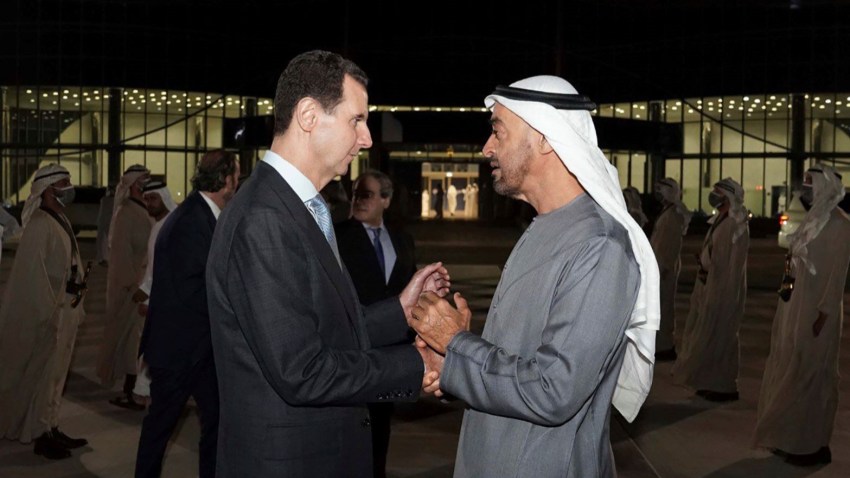In early January, the foreign minister of the United Arab Emirates, Abdullah bin Zayed, visited Damascus, where he met with Syrian President Bashar al-Assad. The visit was followed by the news that a once unthinkable meeting between Turkish President Tayyip Erdogan and Assad is now in the works. Clearly, 2023 has begun with the momentum for normalizing ties with the Assad regime growing.
But efforts to bring Assad in from the cold after more than a decade of isolation due to the brutal war and repression in Syria have been years in the making. The latest push may reflect wider geopolitical trends more than any new reality setting in within Syria itself.
While Syria has not yet rejoined the Arab League since its suspension in 2011 and did not attend the league’s most recent summit in Algeria, Assad’s regional position has significantly improved in recent years. Neighbors that previously supported the Syrian opposition are now coming to terms with a government responsible for unspeakable atrocities, but which managed to stay in power with Russian and Iranian backing. With the exception of Qatar—among the most active Arab supporters of the Syrian opposition—nearly every other Arab state has resumed some level of diplomatic ties with the Assad government.

